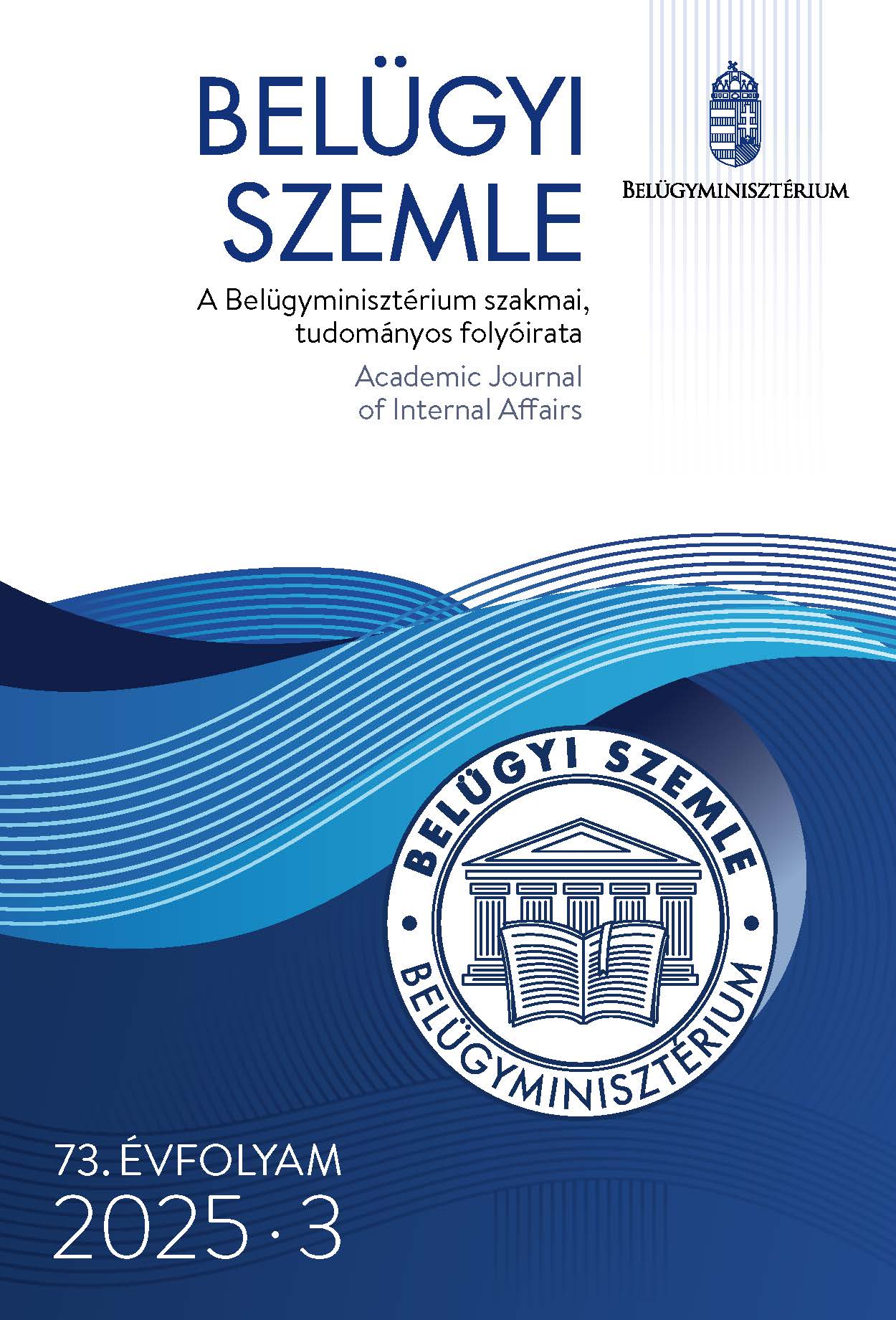Abstract
Aim: To present the internal crime prevention and detection data system of civilian national security services, and to present a reliability test published in the field of national security, but not applicable to the personnel of national security services.
Methodology: Drawing conclusions based on related regulations, textbooks and studies, statistical data, and a reliability study conducted in 1948.
Findings: Reliability testing does not fit into the concept of classical counterintelligence activity, but it can be classified there.
The fact that there is no place for conducting reliability investigations against the staff of national security services does not reduce the efficiency of internal crime prevention and detection. Based on the current legal environment, impeccable lifestyle control is only relevant for the staff of the National Tax and Customs Administration.
Value: No study has examined the internal security and crime prevention activities of civilian national security services and the need for impeccable lifestyle control at these organizations, while studies published on reliability tests have reviewed the legal institution from the perspective of the National Protection Service and especially police corruption. In this respect, the study seeks to provide something new.
References
ÁBTL. (1985). Hírszerzéstörténeti visszaemlékezések (1.11.4, 116. doboz, Kaszner János r. alezredes visszaemlékezése, I. rész, 4. oldal).
ÁBTL. (1986). Hírszerzéstörténeti visszaemlékezések (1.11.4, 116. doboz, Kaszner János r. alezredes visszaemlékezése, II. rész, 3. oldal).
Árvai Z. & Gyaraki K. (2019). 100 éves az önálló magyar katonai felderítés, hírszerzés és elhárítás 1918–2018. Zrínyi Kiadó.
Boda J. (Szerk.). (2019). Rendészettudományi szaklexikon. Dialóg Campus Kiadó.
Dékány B. (2016). A megbízhatósági vizsgálatok története: Egy új jogintézmény útja. Belügyi Szemle, 64(2), 67–77. https://doi.org/10.38146/BSZ.2016.2.5
Finszter G. (2022). A materiális jogellenesség és a megbízhatósági vizsgálatok büntetőjogi következményei. In Ambrus I. & Kőhalmi L. (Szerk.), Mészáros Ádám emlékére (pp. 57–67). Magyar Jog- és Államtudományi Társaság, Publicitas Art Média Kft.
Regényi K. M. (2018). Az elhárítás elméleti modellje (vázlat). In Dobák I., & Hautzinger Z. (Szerk.), Szakmaiság, szerénység, szorgalom: Ünnepi kötet a 65 éves Boda József tiszteletére (pp. 541–546). Dialóg Campus Kiadó.
Resperger I. (Szerk.). (2018). A nemzetbiztonság elmélete a közszolgálatban. Dialóg Campus Kiadó.
Veprik Z. J. (2020). A megbízhatósági vizsgálatok a bírósági ítéletek tükrében. Belügyi Szemle, 68(7), 47–62. https://doi.org/10.38146/BSZ.2020.7.3
Veprik Z. J. (2023). A megbízhatósági vizsgálat mint a rendészeti korrupció elleni küzdelem sajátos kriminalisztikai eszköze. Doktori értekezés. Nemzeti Közszolgálati Egyetem.

This work is licensed under a Creative Commons Attribution-NonCommercial-NoDerivatives 4.0 International License.
Copyright (c) 2025 Academic Journal of Internal Affairs

